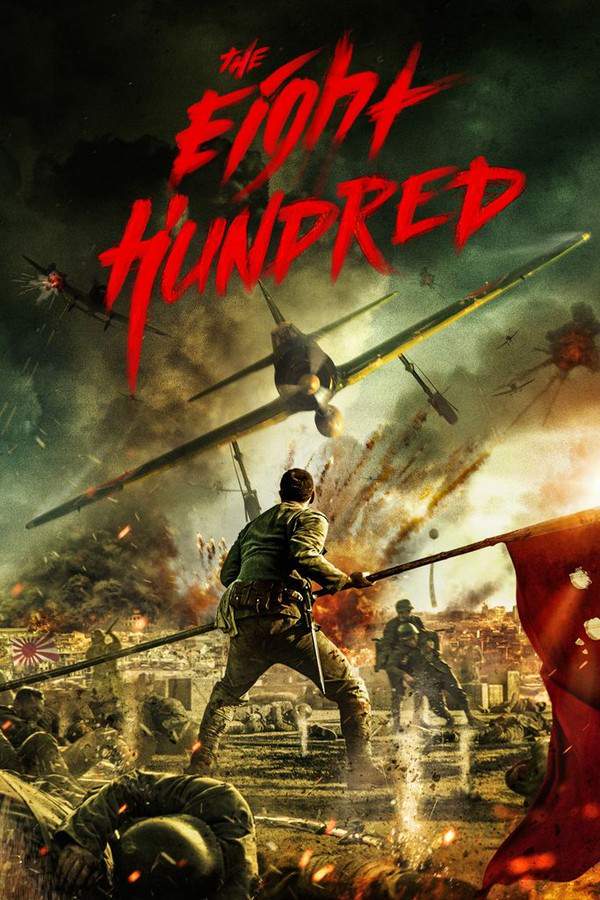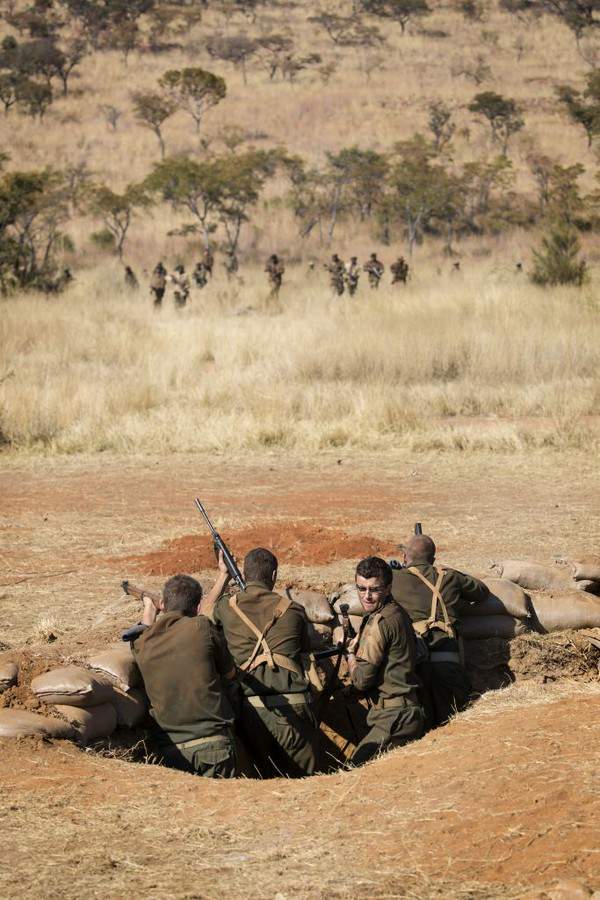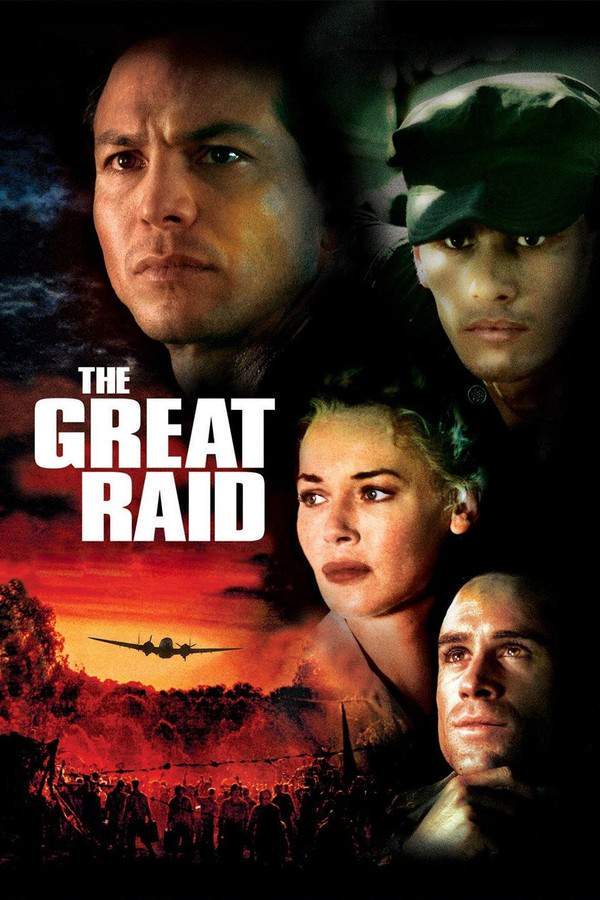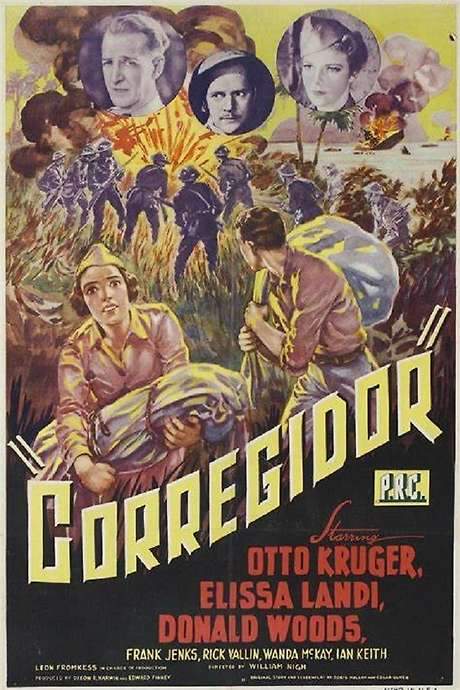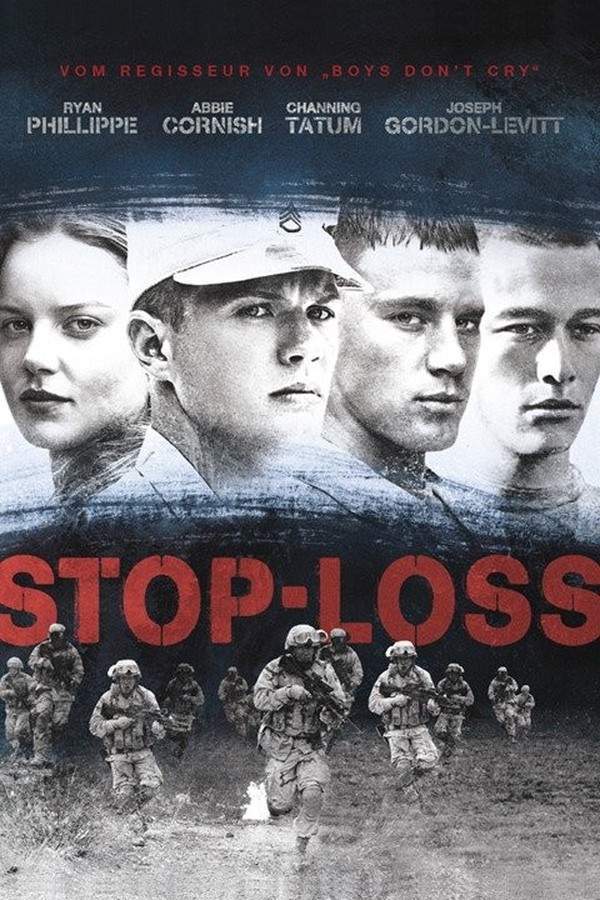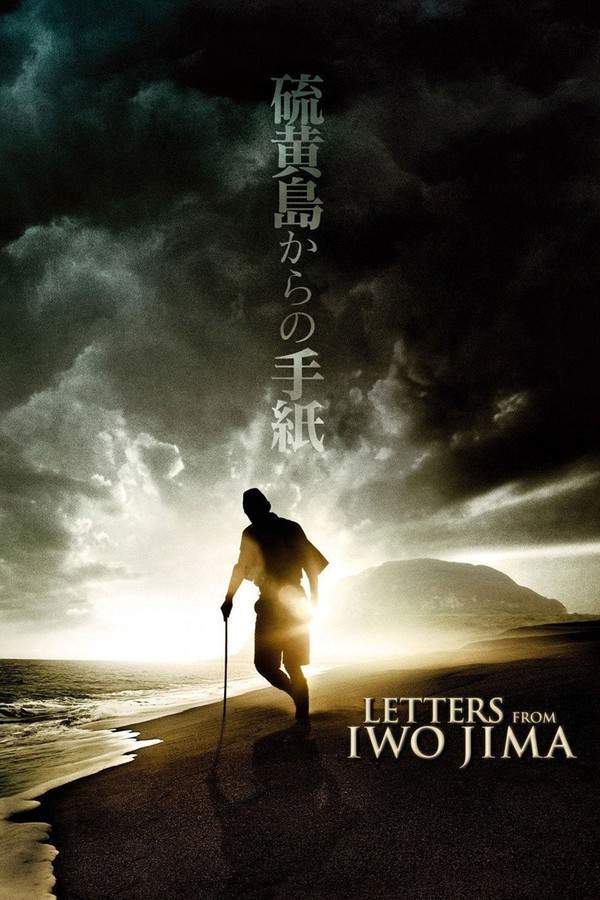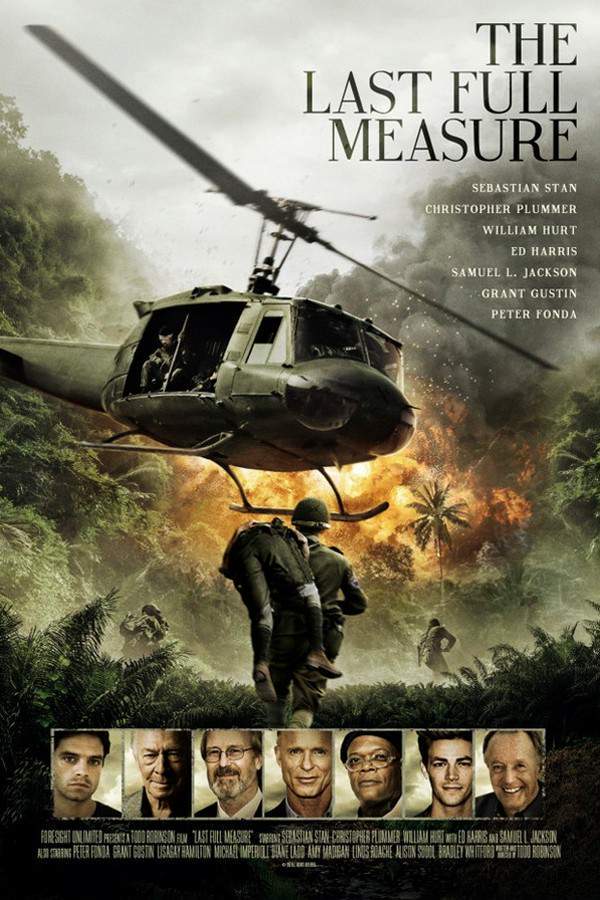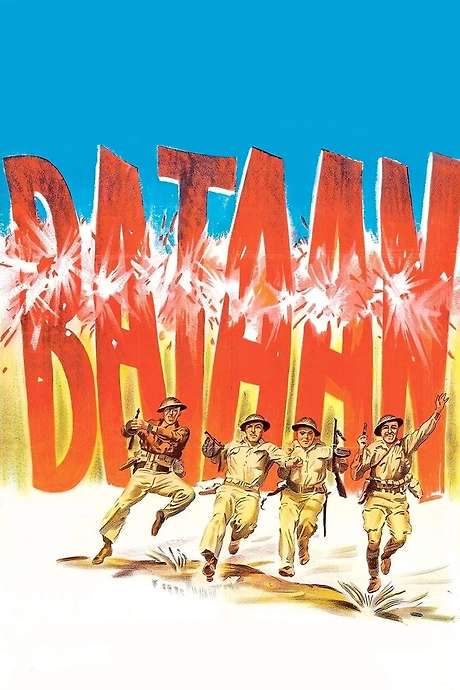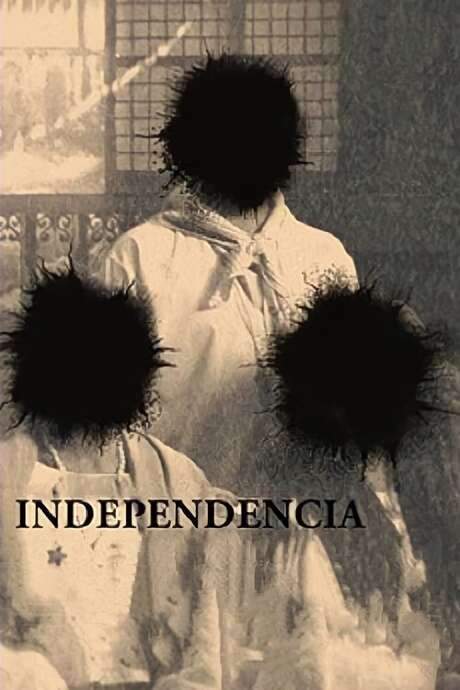
1898: Our Last Men in the Philippines
Year: 2016
Runtime: 130 mins
Language: Spanish
Director: Salvador Calvo
In 1898, a small group of Spanish soldiers are sent to the remote village of Baler in the Philippines to repair a military outpost. With the war against Filipino revolutionaries and the looming arrival of American forces, Spain's empire is crumbling. Cut off from reinforcements and surrounded by enemy forces, the garrison finds itself enduring a prolonged and harsh siege. These men, determined to uphold their duty, will become the last Spanish soldiers to surrender.
Warning: spoilers below!
Haven’t seen 1898: Our Last Men in the Philippines yet? This summary contains major spoilers. Bookmark the page, watch the movie, and come back for the full breakdown. If you're ready, scroll on and relive the story!
1898: Our Last Men in the Philippines (2016) – Full Plot Summary & Ending Explained
Read the complete plot breakdown of 1898: Our Last Men in the Philippines (2016), including all key story events, major twists, and the ending explained in detail. Discover what really happened—and what it all means.
In October 1897, amid the Philippine Revolution, Tagalog rebels allied with the Katipunan launch a bold assault on a Spanish garrison in Baler, Aurora, resulting in the death of 37 of the 50 soldiers stationed there. The siege that follows sets the stage for a prolonged test of endurance, courage, and shifting loyalties.
Three months later, the 2nd Expeditionary Battalion is dispatched from Manila to retake the village. The force is led by Captain Enrique de las Morenas y Fossí and Lieutenant Martín Cerezo. Upon reaching Baler, they adopt a wary stance, heeding the warning from Brother Carmelo that the rebels may already have departed, yet they proceed with caution. On their approach they encounter Sergeant Jimeno Costa, a survivor of the crisis, and Teresa, a village resident who makes clear she bears no grudge against the Spanish Empire.
The battalion is largely composed of fresh cadets, and Morenas stresses that the real adversaries are not only the rebels but also the environment: humidity, disease, typhoons, and wildlife. Among the cadets is Carlos, an aspiring artist from Fuenlabrada de los Montes who hopes to study at the Real Academia de Bellas Artes de San Fernando after the war. He shares his fears and desires with Fray Carmelo, who offers him opium to ease the pain of the moment.
News from Manila arrives in the form of a brutal update: the United States has declared war on Spain, and the Spanish fleet has been destroyed in Cavite. With Manila under siege, supplies dwindle, and Morenas orders the battalion to fortify the church as a potential fortress against a renewed assault. On 30 June 1898, Tagalog rebels strike anew, forcing the Spanish to retreat into the sanctuary of the church.
The following morning, Calixto Villacorta, representing Commander Luna, proposes a one-day truce so both sides can bury their dead. As both sides honor the fallen, Juan defects to the rebels, a turn of events that foreshadows the shifting loyalties inside the besieged church.
By 10 October, beriberi strikes several cadets due to contaminated rations from Manila. Morenas succumbs to the illness that night, and Cerezo assumes command in the fight to hold the position. Teresa and the village women bring oranges and the latest newspapers as a peace offering, but the gesture sparks an argument between Cerezo and Costa about the future of the battalion. On 31 December, Brother Carmelo dies of beriberi, a loss that intensifies the strain inside the church.
Days later, after hearing Teresa singing in the village, Cerezo shoots her, and the Tagalog forces retaliate by shelling the church. Costa and other cadets attempt to sabotage the rebels’ cannon, while Carlos’s actions—stealing food and burning nearby houses—pull him deeper into danger and withdrawal symptoms when Carmelo’s opium pipe is found. He is confined to the basement during this turmoil.
On 18 May 1899, Lieutenant Colonel Cristóbal Aguilar y Castañeda arrives on behalf of Governor-General Diego de los Ríos to demand the battalion lay down its arms. Cerezo remains convinced that the documents he has received are false, and Carlos volunteers to travel to Manila to verify the truth. He is captured by Tagalog forces and brought to Luna, who reveals that Spain had sold the Philippines to the Americans for $20 million, initiating the Philippine–American War. Carlos returns to the church to relay what he learned, but Cerezo refuses to stand down. That night, Carlos, José, and Carvajal attempt to flee the church; Costa executes Carlos, while Cerezo orders the execution of the other two cadets.
The next day, Cerezo raises the white flag from the church tower and hands over a formal surrender to Luna, who pledges not to take the battalion prisoner and leaves their fate to the American forces. A guard of honor is granted, and the men depart with the poignant line “it has been four centuries, lieutenant.” Carlos receives a letter of exemplary conduct, but he refuses to stay quiet about the truth of their situation, discarding his art book as the surviving cadets leave the church behind.
The siege endures for 337 days, claiming 17 Spanish lives and more than 700 Filipino deaths, a conflict that signals the end of the Spanish Empire in the region. Among the survivors, Cerezo is awarded the Laureate Cross, while the enlisted men receive the Cross of Military Merit and a pension for life, marking a somber, hard-won closure to a chapter defined by endurance, misgivings, and the cost of war.
Last Updated: October 03, 2025 at 06:47
Explore Movie Threads
Discover curated groups of movies connected by mood, themes, and story style. Browse collections built around emotion, atmosphere, and narrative focus to easily find films that match what you feel like watching right now.
Movies about military sieges like 1898: Our Last Men in the Philippines
Stories of isolated soldiers holding their ground against overwhelming odds.If you liked the tense survival story of 1898: Our Last Men in the Philippines, explore more movies about military sieges. These films capture the grim determination of soldiers holding out against impossible odds, often blending historical drama with intense character studies under extreme pressure.
Narrative Summary
Narratives in this thread follow a group of soldiers or defenders as they fortify a position and face a protracted attack. The story unfolds through the daily grind of survival, internal conflicts, and the psychological strain of isolation, often leading to a climax where their resolve is ultimately tested.
Why These Movies?
These films are grouped by their shared focus on the siege as a central narrative device, creating a consistently tense and claustrophobic atmosphere. They explore themes of duty, loyalty, and the human cost of war within a confined, high-stakes setting.
Dramas about futile duty like 1898: Our Last Men in the Philippines
Character-driven stories where honor and duty clash with grim reality.For viewers who appreciated the heavy emotional weight and bittersweet ending of 1898: Our Last Men in the Philippines, this section features movies about characters grappling with futile duty. These stories explore the psychological toll of honoring a commitment in the face of inevitable loss or defeat.
Narrative Summary
The narrative pattern follows protagonists who uphold a code or orders despite mounting evidence of their pointlessness. The journey is internal, focusing on their resolve cracking under pressure, their relationships straining, and culminating in an ending that acknowledges their honor but underscores the tragedy of their sacrifice.
Why These Movies?
These movies share a somber, heavy mood and a thematic exploration of duty's futility. They are united by a bittersweet or bleak emotional conclusion and a pacing that allows for deep immersion into the characters' psychological struggle.
Unlock the Full Story of 1898: Our Last Men in the Philippines
Don't stop at just watching — explore 1898: Our Last Men in the Philippines in full detail. From the complete plot summary and scene-by-scene timeline to character breakdowns, thematic analysis, and a deep dive into the ending — every page helps you truly understand what 1898: Our Last Men in the Philippines is all about. Plus, discover what's next after the movie.
1898: Our Last Men in the Philippines Timeline
Track the full timeline of 1898: Our Last Men in the Philippines with every major event arranged chronologically. Perfect for decoding non-linear storytelling, flashbacks, or parallel narratives with a clear scene-by-scene breakdown.

Characters, Settings & Themes in 1898: Our Last Men in the Philippines
Discover the characters, locations, and core themes that shape 1898: Our Last Men in the Philippines. Get insights into symbolic elements, setting significance, and deeper narrative meaning — ideal for thematic analysis and movie breakdowns.

1898: Our Last Men in the Philippines Spoiler-Free Summary
Get a quick, spoiler-free overview of 1898: Our Last Men in the Philippines that covers the main plot points and key details without revealing any major twists or spoilers. Perfect for those who want to know what to expect before diving in.

More About 1898: Our Last Men in the Philippines
Visit What's After the Movie to explore more about 1898: Our Last Men in the Philippines: box office results, cast and crew info, production details, post-credit scenes, and external links — all in one place for movie fans and researchers.

Similar Movies to 1898: Our Last Men in the Philippines
Discover movies like 1898: Our Last Men in the Philippines that share similar genres, themes, and storytelling elements. Whether you’re drawn to the atmosphere, character arcs, or plot structure, these curated recommendations will help you explore more films you’ll love.
Explore More About Movie 1898: Our Last Men in the Philippines
1898: Our Last Men in the Philippines (2016) Scene-by-Scene Movie Timeline
1898: Our Last Men in the Philippines (2016) Movie Characters, Themes & Settings
1898: Our Last Men in the Philippines (2016) Spoiler-Free Summary & Key Flow
Movies Like 1898: Our Last Men in the Philippines – Similar Titles You’ll Enjoy
Amigo (2011) Full Summary & Key Details
A Short Film About the Indio Nacional (2005) Spoiler-Packed Plot Recap
Oro, Plata, Mata (1982) Ending Explained & Film Insights
The Last from Philippines (1986) Ending Explained & Film Insights
Back to Bataan (1945) Movie Recap & Themes
As We Were (1976) Ending Explained & Film Insights
Bataan (1943) Plot Summary & Ending Explained
American Guerrilla in the Philippines (1950) Story Summary & Characters
Corregidor (1943) Movie Recap & Themes
Independencia (2009) Full Summary & Key Details
Los últimos de Filipinas (1945) Detailed Story Recap
The Last Outpost (1935) Film Overview & Timeline
Fires on the Plain (1959) Complete Plot Breakdown
Baler (2008) Story Summary & Characters
The Legend of the Last Inca (2024) Complete Plot Breakdown

